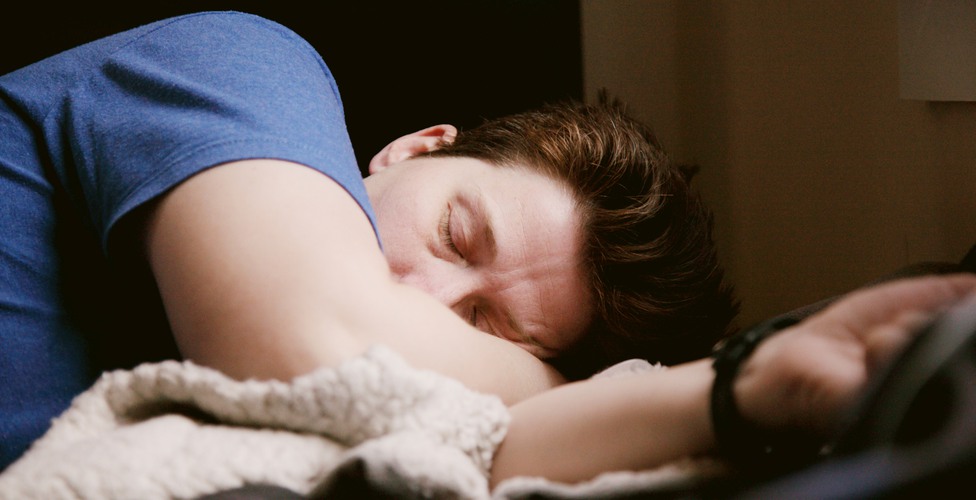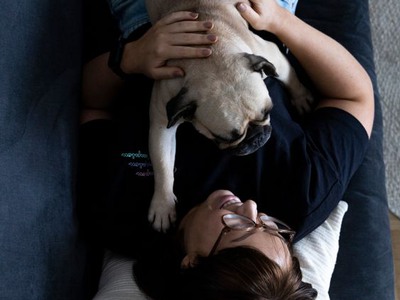When crises and conflicts shake the world, the effects are not only visible in the news – they also appear in our dreams. Research from the University of Skövde shows that troubled times lead to more nightmares. But there are ways to sleep better.

What did you dream about last night? Perhaps something anxious, chaotic, even frightening? You’re not alone. When bombs fall over Gaza, when the war in Ukraine continues to claim lives, and when anxiety over instability brews in the US, the world’s chaos seeps into our subconscious and our dreams.
“The state of the world is reflected in our sleep. When we worry in our daily lives, it often shows up as nightmares or stress dreams,” says Katja Valli, dream researcher and Professor of Cognitive Neuroscience at the University of Skövde.
Crises echo in the dream world
Dreams are not random. They are influenced by what we experience, both on an individual and societal level. By studying people’s dreams during crises such as war, natural disasters, and pandemics, researchers have identified clear patterns.
It’s common to have nightmares after traumatic events. Children in war zones and war veterans are often affected, especially those who have suffered physical injuries. Extreme trauma can even lead to lifelong nightmares.
"Women who experienced the 2004 tsunami had dreams filled with terrifying water motifs long after the event,” says Katja Valli.
Personality matters for how we dream
Even global crises that do not physically affect us directly can influence our dreams. During the COVID-19 pandemic, the number of reported nightmares increased, along with dreams themed around illness, confinement, and fear of breaking rules.
“The more personally affected we are, the clearer the impact on our dreams. But our personality also plays a role. If we tend to worry, our dreams are more likely to be negative,” Katja Valli explains.

Katja Valli, Professor of Cognitive Neuroscience
Dreams reveal how we feel
Research shows a clear connection between our waking emotions and the content of our dreams. If we are happy and at peace, our dreams tend to be more positive. If we feel worried, anxious, or stressed, those emotions often find their way into our dreams.
“In this way, dreams can serve as a mirror of both individual and collective mental health. Dreams can also influence how we feel the next day. A nightmare may leave us feeling low, while a positive dream can give us a sense of inner peace."
Why we dream negatively
But why are so many dreams negative – even in stable times?
“Our dreams have evolved to simulate threats. It functions as a mental training ground for the brain, where we practise detecting and handling dangers, something that increased our ancestors’ chances of survival.”
How to sleep better in troubled times
Fortunately, there are ways to reduce negative dreams. Katja Valli explains that the most important thing is to try to reduce stress in waking life. Routines, relaxation, and physical activity are key to promoting better sleep, and thus more positive or neutral dreams. By creating a safe and stable everyday life, the brain can process daily impressions more calmly during the night.
“We cannot control everything that happens in the world, but we can influence how we respond to it, and thereby how we dream,” says Katja Valli.
The dream researcher’s tips for good sleep
-
Go to bed and wake up at the same time every day, even on weekends. A regular circadian rhythm helps the body sleep better.
-
Read a book, listen to soothing music, and avoid caffeine, nicotine, and alcohol.
-
Write down your thoughts and worries before bedtime. This helps the brain let go of anxiety. Keep it to a maximum of 15 minutes and then turn your thoughts to something positive.
-
Regular exercise reduces stress and improves sleep. However, avoid intense workouts right before bedtime – the body needs time to wind down.
Dream research at the University of Skövde
Research projects about dreams
- COVID-19 on MIND
- The role of dreaming in waking emotion regulation
- Dreaming after trauma
- Dreaming: phenomenology, correlates, and implications for well-being
- Ukraine war, well-being, dreaming and mind-wandering
Scientific publications
- Viral simulations in dreams
- The effect of the COVID-19 pandemic on threatening dream content
- COVID-19 on mind
- The impact of the 2004 Indian Ocean tsunami on survivor dream content
- Dream function and dream amnesia
- Effects of social seclusion on social dream content and REM sleep
- The Holocaust as a Lifelong Nightmare
- Nightmares: Risk factors among the Finnish general adult population
- The threat simulation theory of the evolutionary function of dreaming



